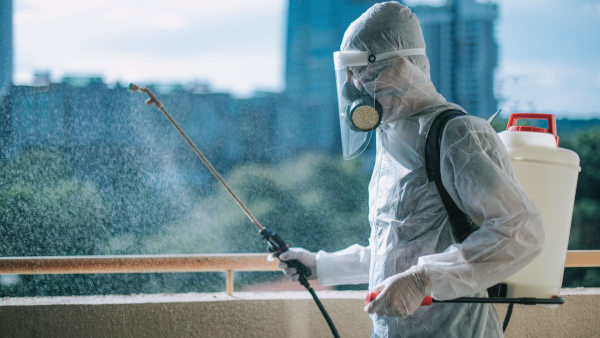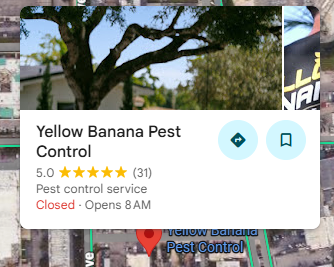Pest Control Strategies Protect Homes and Local Gardens
Effective Pest Control protects homes and gardens by preventing infestations, promoting plant resilience, supporting ecological balance, enhancing hygiene, and ensuring safety, comfort, and long-term environmental and structural health.
Fort Lauderdale, Florida, United States, 20th Nov 2025 – Pest Control plays a vital role in maintaining healthy homes and thriving local gardens. Unwanted pests can cause extensive damage to plants, contaminate food supplies, and threaten household safety. Through proper Pest Control measures, homeowners can protect their spaces from destructive insects, rodents, and other invaders that compromise comfort and sanitation. Integrated approaches combine preventive techniques, safe treatments, and routine inspections to manage pest populations effectively. Maintaining a clean environment and sealing entry points help discourage infestations before they begin. In local gardens, Pest Control supports plant growth by reducing pest-related stress, allowing fruits, vegetables, and flowers to flourish. Consistent management preserves the natural ecosystem while ensuring properties remain safe, functional, and beautifully maintained all year round.
Preventive Home Measures
Pest Control begins with preventive steps that reduce the likelihood of infestations before they occur. Regular cleaning, proper waste management, and sealing potential entry points help deter unwanted pests. Maintaining dry, clutter-free environments limits hiding spots and food sources for insects and rodents. Routine inspections are also vital in detecting early signs of infestation, allowing immediate response. These strategies establish a protective barrier that minimizes future problems. Effective Pest Control focuses on consistent prevention, ensuring that homes remain sanitary, secure, and free from harmful organisms that threaten both structure and health.

Garden Health Maintenance
Applying Pest Control to gardens ensures the protection of plants and soil from destructive insects and larvae. Balanced pest management preserves essential pollinators while targeting harmful species that damage leaves, roots, and stems. Gardeners can support natural resilience by rotating crops, using organic mulch, and maintaining proper watering schedules. Healthy plants are less vulnerable to pest attacks, promoting long-term garden stability.
Encouraging Natural Balance
Pest Control promotes ecological harmony by preserving beneficial insects while managing harmful ones. Maintaining this balance ensures that pollinators thrive, contributing to healthy plant reproduction and sustainable garden growth without excessive interference from chemical treatments or invasive pest populations.
Enhancing Soil Fertility
Through effective Pest Control practices, soil quality remains rich and balanced. Healthy soil supports strong root systems and nutrient absorption, allowing plants to resist pests naturally. Regular monitoring and organic care enhance long-term fertility, improving plant productivity and overall garden health.
Promoting Plant Resilience
Consistent Pest Control encourages plants to develop natural defenses against infestations. Proper watering, nutrient management, and pest monitoring reduce stress, helping vegetation grow strong and adaptable. Resilient plants resist pest damage more effectively, leading to healthier, longer-lasting garden ecosystems.
Sustainable Pest Management
Eco-friendly Pest Control minimizes chemical dependency by using natural deterrents, biological controls, and environmentally safe techniques. This approach protects the environment while ensuring long-term garden stability. Sustainable methods also safeguard pollinators, ensuring consistent flowering, fruiting, and overall biodiversity in home gardens.
Building a Thriving Ecosystem
Pest Control creates a supportive environment where plants, insects, and soil organisms coexist beneficially. A well-maintained garden attracts pollinators and deters harmful pests naturally. By promoting biodiversity, homeowners ensure that gardens remain vibrant, productive, and environmentally balanced throughout every season.
Safe and Eco-Friendly Methods
Eco-conscious Pest Control emphasizes the use of natural and safe approaches that protect human health and the environment. Strategies include using biological predators, environmentally approved products, and minimal chemical exposure. These methods maintain ecological balance while effectively managing pest populations. By focusing on sustainability, households can safeguard beneficial insects and prevent soil or water contamination. Responsible Pest Control not only eliminates harmful species but also nurtures ecosystems, allowing both homes and gardens to coexist harmoniously with nature while ensuring long-lasting pest prevention.
Seasonal Pest Management
Different seasons bring unique pest challenges, making Pest Control a year-round necessity. Spring and summer often see increased insect activity, while colder months attract rodents seeking warmth indoors. Seasonal monitoring helps identify emerging threats early and allows timely action. Adjusting strategies to match weather patterns and pest behavior ensures better control outcomes. Regular inspections and targeted treatments strengthen protection during high-risk periods. With this proactive approach, homeowners maintain consistent comfort, keeping both living spaces and gardens secure and pest-free throughout the changing seasons.
Structural Protection Plans
Structural integrity depends greatly on effective Pest Control practices. Termites, carpenter ants, and rodents can cause extensive damage to wood, insulation, and wiring if left unchecked. Implementing inspection routines, sealing cracks, and maintaining foundation barriers prevent pest entry. Moisture control also plays a critical role in deterring nesting and feeding activity. By combining preventive maintenance with strategic treatments, homeowners preserve the durability and value of their properties. Consistent Pest Control ensures that buildings remain safe, energy-efficient, and resistant to the long-term effects of pest damage.
Health and Sanitation Benefits
Pest Control contributes significantly to public health and household hygiene. Many pests carry bacteria, allergens, and diseases that endanger residents’ well-being. By controlling infestations, families reduce risks of contamination, allergic reactions, and infections. Clean environments discourage pests from breeding and spreading harmful substances. Regular sanitation routines paired with Pest Control strengthen safety standards indoors and outdoors. This comprehensive protection improves air quality, promotes comfort, and ensures that living and gardening areas remain healthy environments where people and plants can thrive without exposure to preventable hazards.
Preventing Disease Spread
Pest Control reduces the transmission of harmful bacteria and pathogens that pests carry. Eliminating these threats protects families from illnesses like foodborne infections and respiratory issues, ensuring safer living conditions and promoting long-term community health and wellness.
Improving Indoor Air Quality
Effective Pest Control helps maintain fresh, breathable air inside homes. By removing droppings, nests, and allergens left behind by pests, households experience fewer respiratory irritations, creating a cleaner, more comfortable atmosphere that supports better overall health.
Reducing Allergic Reactions
Many pests trigger allergies through bites, dander, or droppings. Pest Control minimizes these allergens, improving comfort for individuals sensitive to dust mites or insects. Cleaner indoor environments reduce sneezing, itching, and asthma-related symptoms for family members.
Enhancing Food Safety
Pest Control safeguards kitchens and pantries from contamination caused by rodents and insects. Preventing pest access to food storage areas reduces the risk of spoilage and poisoning, maintaining safe, hygienic spaces for meal preparation and consumption.
Promoting Long-Term Hygiene
Consistent Pest Control supports a lasting culture of cleanliness. Regular treatments and sanitation prevent re-infestations, ensuring that both indoor and outdoor spaces remain orderly, healthy, and safe. This proactive approach maintains hygiene standards that benefit families year-round.
Community and Environmental Harmony
Pest Control supports more than individual homes—it enhances the entire community and local environment. Managing pests collectively reduces their spread across neighborhoods and protects shared green spaces. Collaborative pest prevention encourages cleaner surroundings and healthier ecosystems. When communities adopt responsible Pest Control practices, they minimize chemical dependency and promote natural balance. This unity fosters sustainable urban and suburban environments where residents, plants, and wildlife coexist peacefully. Through mindful action, communities can maintain beauty, safety, and ecological stability for generations to come.
Conclusion
Effective Pest Control strategies create safer, healthier homes and flourishing gardens by preventing infestations that damage structures and vegetation. From sealing entry points to using eco-friendly treatments, consistent maintenance ensures protection against unwanted pests while promoting environmental balance. Homeowners who prioritize Pest Control enjoy long-term comfort, cleanliness, and peace of mind knowing their property and garden remain secure year-round.
For professional and reliable Pest Control services, contact Yellow Banana Pest Control in 220 SW 29th St, Fort Lauderdale, FL 33315. Their experienced team provides tailored pest management solutions for homes and gardens. Call 954-884-5001 today to schedule your inspection and safeguard your property.
Yellow Banana Pest Control
220 SW 29TH ST Fort Lauderdale FL 33315
954-884-5001
Company Details
Organization: Yellow Banana Pest Control
Contact Person: Yellow Banana Pest Control
Website: https://yellowbananapest.com/
Email: Send Email
Contact Number: +19548845001
Address: 220 SW 29TH ST Fort Lauderdale FL 33315
City: Fort Lauderdale
State: Florida
Country: United States
Release Id: 20112537452

